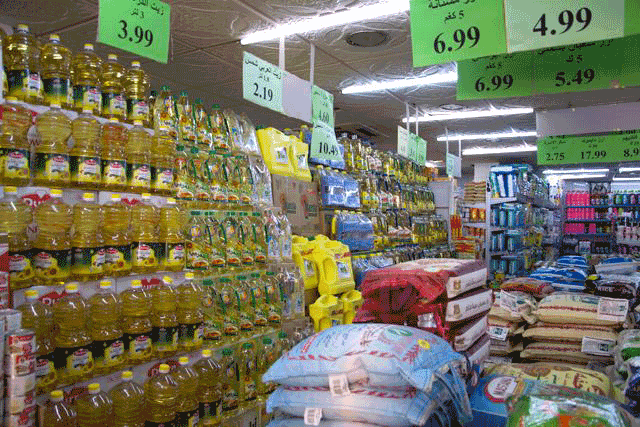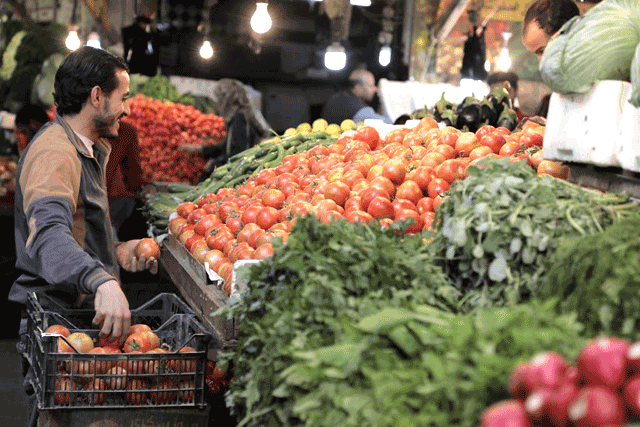You are here
Inspectors working ‘day and night’ to prevent price gouging — official
By Rayya Al Muheisen - Mar 14,2023 - Last updated at Mar 14,2023

Ramadan — the fasting month for Muslims — is just around the corner, and the demand for goods, especially food items, is expected to increase significantly during the holy month (JT file photo)
AMMAN — The Ministry of Industry, Trade and Supply is keeping an eye on the prices of goods, and is assuring the public that inspection teams will be working “day and night” to prevent price manipulation during Ramadan, according to an official.
Ramadan — the fasting month for Muslims — is just around the corner, and the demand for goods, especially food items, is expected to increase significantly during the holy month. Merchants are currently stocking up on food items to meet the expected surge in demand.
Family gatherings and feasts are very common during Ramadan, and additionally, Muslims refrain from eating, drinking and smoking for almost 16 hours a day, which creates an effect known as “fasting cravings”. Therefore, the demand for food-related items skyrockets during Ramadan, and often, so do prices.
Yanal Barmawi, spokesperson of the Ministry of Industry, Trade and Supply, told The Jordan Times that the ministry’s inspection teams are undertaking daily inspection campaigns to monitor the prices of food items.
“Inspection campaigns will be further increased during Ramadan,” Barmawi added.
Barmawi noted that prices are “stable”, and there have been no increases in the prices of food items so far. According to Barmawi, the ministry has ensured “strategic reserves” of all essential food items.
The Ministry of Agriculture confirmed that there are sufficiently available vegetables, fruits, meat and dairy products to meet the needs of all Jordanians throughout the month of Ramadan, according to the Jordan News Agency, Petra.
The available quantity of imported fruits and vegetables exceeds the average consumption of the local market, Petra reported.
“The available quantities of fruits and vegetables amount to 4,500 tonnes daily, although the local market consumes around 3,500 tonnes daily,” Petra added.
However, under the prevailing financial circumstances, Jordanians report exercising caution when it comes to buying food items.
“Generally speaking, there are no drastic changes to my family’s eating habits during Ramadan. However, my grocery bill increases dramatically,” Dua’ Subhi, a Jordanian homemaker, told The Jordan Times.
Subhi added that last year, the prices of poultry, vegetables, cooking oil and rice increased during Ramadan.
Despite officials’ ongoing announcements that prices will not increase during Ramadan, Subhi believes that the prices do increase, which will only affect the quality of food consumed.
“When the prices of chicken, for example, increase, people will not be prevented from buying it. They will only look for discounted prices, which are generally almost-expired items,” Subhi added.
Jordanian Rozana Khatib told The Jordan Times that her family spends more money on groceries, clothes and utility bills during the holy month.
“My family’s increased Ramadan spending power is perhaps linked to the fact that my husband and I save throughout the year for Ramadan and Eid Al Fiter,” Khatib added.
Related Articles
AMMAN — Despite ongoing assurances from the authorities that the prices of food items will not increase during Ramadan, prices of several fo
AMMAN — The Ministry of Industry, Trade and Supply has so far issued around 245 violation tickets to shops — including supermarkets, bakerie
AMMAN — The global price hike of essential commodities will not affect the local market during Ramadan, according to Yanal Barmawi, the Mini

















